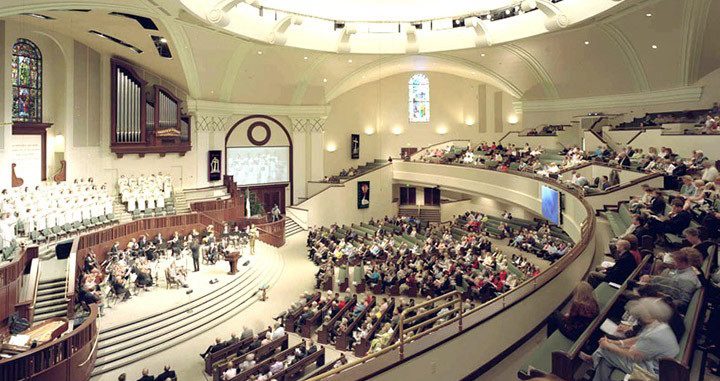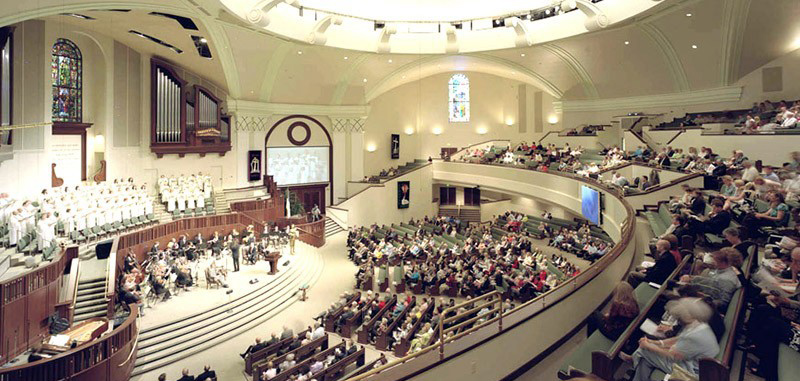Life moved on, and somehow I missed that two weeks ago the deacons of Immanuel Baptist Church in Little Rock, Ark., finally took a vote of confidence in Pastor Steven Smith. According to published reports, 59% of those voting supported the embattled pastor and 41% opposed him — but nearly a third of deacons didn’t vote.
In context, the church in January listed 61 deacons. Only 26 (43% of the total) voted to support the pastor while 18 voted against him and 17 did not vote at all. That’s effectively a 57% vote of no confidence.

Mark Wingfield
Now, if you’re a Baptist pastor or have ever served as a lay leader in a Baptist church, you can read the handwriting on the wall here. A pastor can temporarily survive a bare-majority vote of confidence but no pastor can survive this kind of tepid endorsement for long — unless one other condition happens.
That condition, of course, is dictatorship.
The only way a Baptist pastor stays pastor of a church where a majority of the elected leaders oppose him is to outlast the critics. And that appears to be part of what is happening at one of the largest Southern Baptist churches in Arkansas. By published reports, families with children have been leaving the church in droves in light of the mishandled sexual abuse scandals there. And now deacons are leaving as well, which is probably why so many didn’t vote.
I do not know Steven Smith; I’ve never met him. But I did know his father, Bailey Smith, who was longtime pastor of First Southern Baptist Church of Del City, Okla., just another suburb away from where I mostly grew up in Moore, Okla. Bailey Smith’s signature “shadow of a doubt” revival sermons are the reason I was baptized a second time as a teenager — he scared the hell back into us so we’d want to be rebaptized and be sure we “knew that we knew” we were saved.
That kind of theological nut apparently doesn’t fall far from the tree. The only times I can remember a Baptist pastor not immediately resigning when they failed to get a strong vote of confidence are when the pastor was staging a coup.
Seriously, in most Baptist churches that practice of congregational governance (yes, there are some that do not anymore) takes at least an 80% affirmative vote (sometimes 90%) to get elected as pastor. How could a pastor believe he could survive on a vote of confidence far less than that?
What we are witnessing from afar at Immanuel Baptist appears to be a convergence of two of the greatest conflicts plaguing American churches today — not knowing how to prevent and respond to sexual abuse, and not being able to oust authoritarian pastors.
It is astounding to watch a church as historic as Immanuel fall apart through such events. If it can happen there, it can happen in your church too.
A historical irony from my own perspective is that more than 35 years ago, the church of my youth in suburban Oklahoma City called a pastor who was a protégé of Bailey Smith and who, through sheer arrogance and stubbornness, split the church and eventually got run off. Here’s the irony: That’s the same church that received the abusive staff member who was allowed to leave Immanuel Baptist without parents knowing what had happened there.
Even though the SBC is the largest Protestant denomination in America, it really is a small world when it comes to pastors and church staff. Had Steven Smith or anyone at Immanuel warned First Baptist Church of Moore, Okla., what had happened there, the Oklahoma church could have been spared its own possible exposure to abuse.
“The way of Baptist pastors is to remain silent and, like Catholic bishops, allow abusers to travel from church to church.”
But the way of Baptist pastors is to remain silent and, like Catholic bishops, allow abusers to travel from church to church.
Members and deacons at Immanuel seem to have wanted to hold their pastor accountable for being part of that good-ol’-boy network, but they have been stymied by the good-ol’-boy network. I’m not aware of any SBC leader who has called for Steven Smith to step aside. That’s because he’s part of their club.
Here are some warning signs to look for in your own church, to protect this kind of impasse from happening to you:
- Make sure your church has current governing documents, including bylaws and personnel policies. If bylaws and personnel policies are not available for you to review, that’s bad news.
- Make sure your church’s bylaws or personnel policies spell out procedures not only for hiring ministerial staff (especially the pastor) but also for removing the pastor. You don’t ever want to have to use the second part of that equation, but the best insurance policy against it is to have it written down.
- Make sure your church’s governing documents specify who makes decisions about what. How much authority does the pastor have? Who is the pastor accountable to? What lay leadership groups exist and what are their roles? If the church has deacons, what authority do they have? If the church has a church council, what authority do they have? If the church has elders, who appoints or elects them and how might they be removed?
- Make sure your church’s governing documents call for rotating lay leadership. No single person should serve as chairman of the deacons or the personnel committee or the finance committee for more than three years. Non-rotating leadership groups are easier to manipulate.
- Find out what your church’s policies are regarding preventing and reporting abuse. Who is a mandatory reporter? What procedures are to be followed when an incident occurs or is reported?
In recent years, we have witnessed a movement of heavy-handed pastors who want to be not just the shepherd of the flock but also the owner of the ranch. That is not the Baptist way. It is sometimes the megachurch way, and it is sometimes the nondenominational way. But it is not the Baptist way.
Pay attention to Little Rock and remember the old adage: An ounce of prevention is better than a pound of cure.
Mark Wingfield serves as executive director and publisher of Baptist News Global. He is the author of Honestly: Telling the Truth About the Bible and Ourselves and Why Churches Need to Talk About Sexuality.
Related articles:
Saga of Little Rock church’s conflict over sexual abuse claims still making headlines
Prominent Arkansas SBC church accused of hiding knowledge of former staff member’s abuse of child
More details emerging of Little Rock church’s abuse problem


